French words that the English language needs
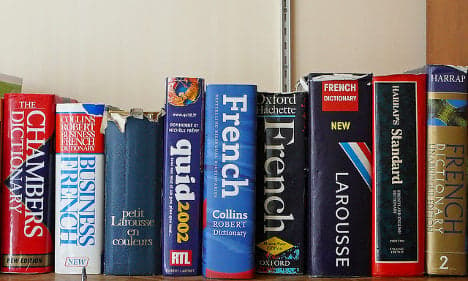
Isn't it about time English started stealing words from French again? Here's a list of great French words we think it's high time were added to our dictionaries.
It might sound like a cliché, but a croissant from a café is always better than one from a restaurant.
While that might look like a typically English sentence to you, four of the key words are pilfered from the French language.
Now there's nothing wrong with that especially given how many English words are drifting across the Channel into the French language these days.
In fact, there are thousands French words that have made it into English over the years, from the delightful "cul-de-sac" to the more eyebrow-raising ones like RSVP (répondez s'il vous plaît), which mindbogglingly snuck past the happy-go-lucky English language police.
Seeming as the English language police are far more carefree than their French counterparts, we are proposing more French words that need to be copy-pasted into English dictionaries today.
Starting with a classic.
Flâneur
.jpg)
(A flaneur in Paris. Photo: Tom/Flickr)
This is a word to refer to a person who enjoys a good mindless wander, with everything that goes with it. If you think "stroller" is a good translation then think again. A stroller is much better suited to a baby transporter. Example: "My father's a bit of a flaneur. He's always going out for a stroll," sounds perfectly normal in English.
La Couvade
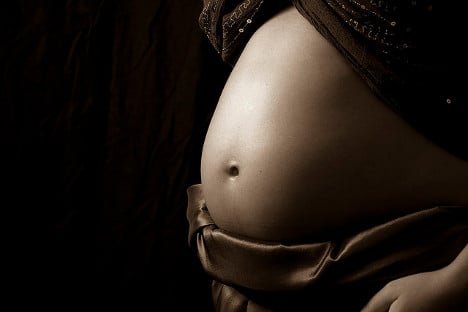
(Photo: JK Califf/Flickr)
"La Couvade" is a phenomenon that occurs in men whose partners are pregnant. Just as the bump on the mum-to-be increases, so does the belly on the dad-to-be.
A "sympathetic pregnancy" is about as close as you can get, but it's pretty useless as an alternative. Example: "You need to do something about your couvade!" says mum to dad. "You're not the one having the baby!"
This term does actually exist in English but it is hardly used and needs to be, especially as there are a lot of English speaking guys out there who will no doubt know exactly what we are talking about.
Empêchement
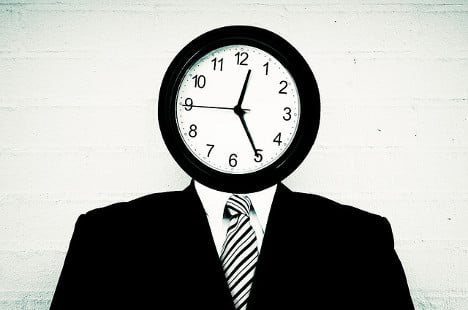
(Photo: MonkeyC/Flickr)
An empêchement is an unforeseen difficulty or change of plans, generally the kind of thing that crops up and means you're not going to make it to somewhere you said you'd be. In English, we might say "Sorry, something came up", but it would be far better if we could call our boss and say "Sorry I am going to be a little late, there's been an empêchement".
Ras-le-bol
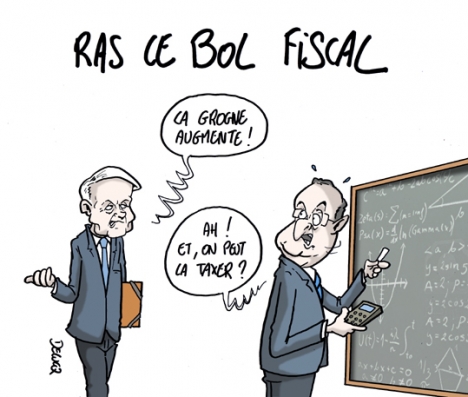 This delightful little word is most often used as part of the phrase "J'en ai ras-le-bol" which literally means "My bowl is full". More figuratively, it means "I've had enough". Ras-le-bol also works as a noun which means "fed-upness" or discontent in general.
The French often talk about the "ras-le-bol fiscal" to refer to their all round fed-upness with having to pay so many taxes.
But English-speakers are not immune to suffering from "tax ras-le-bol" too, or they might be in future.
Dépaysement
This delightful little word is most often used as part of the phrase "J'en ai ras-le-bol" which literally means "My bowl is full". More figuratively, it means "I've had enough". Ras-le-bol also works as a noun which means "fed-upness" or discontent in general.
The French often talk about the "ras-le-bol fiscal" to refer to their all round fed-upness with having to pay so many taxes.
But English-speakers are not immune to suffering from "tax ras-le-bol" too, or they might be in future.
Dépaysement
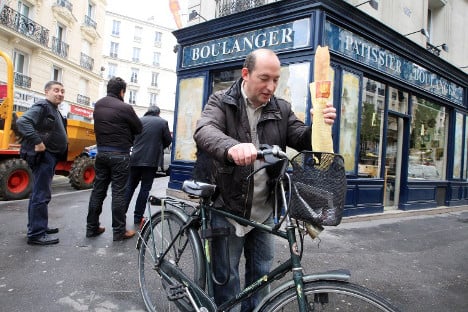
(A man takes a baguette as others line up for one of their own. Photo: AFP)
Imagine when you feel a bit out of place or disorientated in a new setting when things seem strange and foreign. Then you could call home and tell your family you're suffering from a little "dépaysement".
It literally translates to something "de-country-fying" but can also be used in a positive sense. If in a few years' time when an English person tells you they fancy a "dépaysement" they'll be referring to something along the lines of a change of scenery.
Cernes
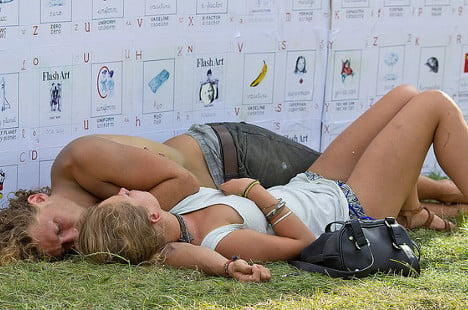
(Photo: Chris Beckett/Flickr)
Who said the French weren't efficient? With just six letters, they've come up with a word that takes at least four words in English - "bags under your eyes". Or "dark rings under your eyes". We like it, and we're pinching it. Example. "Woah, what time did you get home last night? You've got some serious cernes going on".
Bof
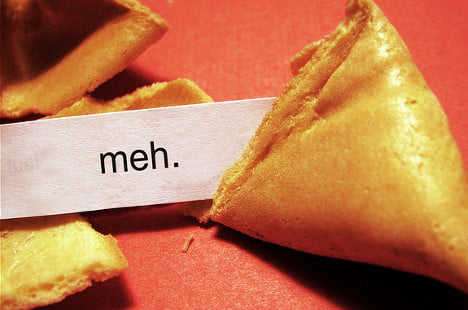
(Photo: Rick Harris/Flickr)
Bof. French people use this little word when they've got a distinct lack of interest in something. It's a cousin of the newish word "meh" in English, which we can all agree is a terrible word and needs to be done away with immediately.
Bof is a little less indifferent, and infinitely more pleasurable to say.
"Did you watch Game of Thrones last night? Bof. I don't really care about it." Plus as soon as you say it you'll find yourself automatically shrugging.
Frileux
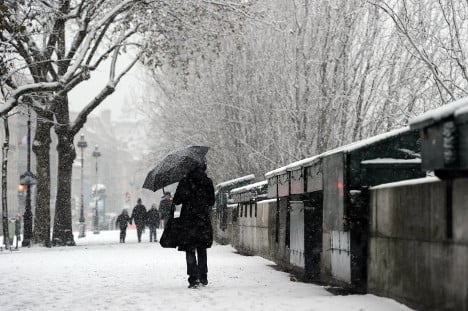
(Photo: AFP)
Here's another one for the language nerds, which means "someone who is sensitive to the cold". Example: "I'm afraid I can't join you on the winter walk along La Seine, I'm a bit of a frileux".
Putain
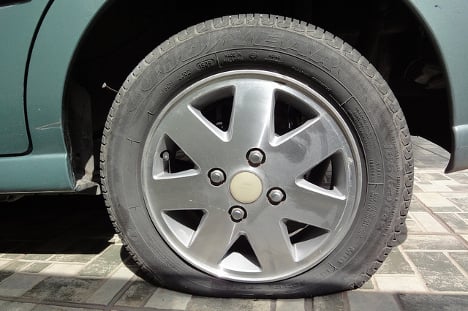
(Photo: Marufish/Flickr)
Spend more than ten minutes in France and you will hear this word.
It's the best swear word in French and could be classed as somewhere between the S word and the F word in English.
Why do we need it? Because it's the ultimate curse word and it just sounds brilliant. In fact, many English-speaking expats in France already have picked it up when they speak their mother tongue.
Example: "Putain... what happened to my tyre?"
Crapoter
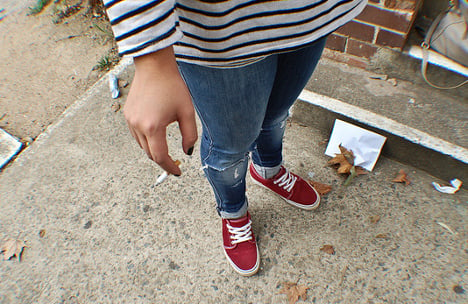
(Photo: Uppy/Flickr)
A fantastic verb that doesn't exist in English, meaning when you puff smoke without really inhaling any into your lungs. Sure, it sounds like a slang American word for a toilet, but who cares, it's a nice verb, and we're pinching it.
"You're not really inhaling you're crapoting."
Le Spleen
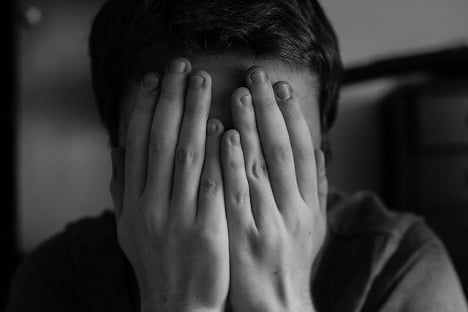
(Photo: ryan melaugh/Flickr)
No, not the blood-filtering organ. Spleen is a word to describe when you're really feeling profoundly down or have a bad case of the blues.
French poet Baudelaire is credited with inventing the word, and even wrote a poem called Spleen about a king who is feeling a whole lot of spleen.
Seigneur-terraces
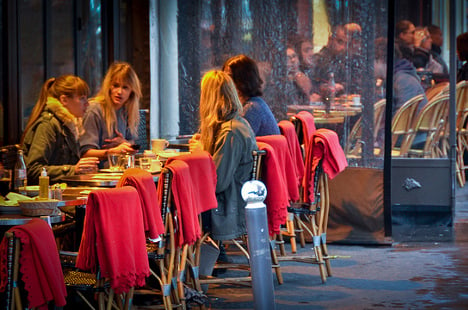 (Photo: Nacho Rascon/Flickr)
You know those people who sit around in a cafe all day, but don't really spend much money? Well, that's what we are now going to refer to as a seigneur-terrace, because that's what the French do. Example: That guy has been sitting there all day, what a seigneur-terrace. Maybe he's here for the WiFi...
Abracadabrant
(Photo: Nacho Rascon/Flickr)
You know those people who sit around in a cafe all day, but don't really spend much money? Well, that's what we are now going to refer to as a seigneur-terrace, because that's what the French do. Example: That guy has been sitting there all day, what a seigneur-terrace. Maybe he's here for the WiFi...
Abracadabrant
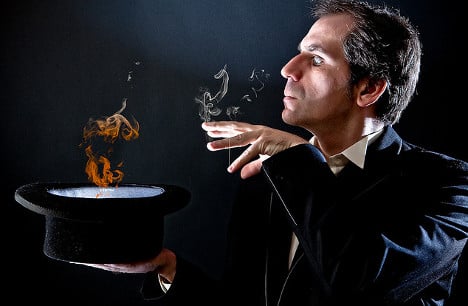
(Photo: Christophe Verdier/Flickr)
Lastly, this is a favourite here at The Local. Taken directly from the magic phrase abracadabra, this adjective means something along the lines of incredible, or marvellous. "Have you tasted the macaroons at that new café? They're absolutely abracadrabrant."
Comments
See Also
It might sound like a cliché, but a croissant from a café is always better than one from a restaurant.
While that might look like a typically English sentence to you, four of the key words are pilfered from the French language.
Now there's nothing wrong with that especially given how many English words are drifting across the Channel into the French language these days.
In fact, there are thousands French words that have made it into English over the years, from the delightful "cul-de-sac" to the more eyebrow-raising ones like RSVP (répondez s'il vous plaît), which mindbogglingly snuck past the happy-go-lucky English language police.
Seeming as the English language police are far more carefree than their French counterparts, we are proposing more French words that need to be copy-pasted into English dictionaries today.
Starting with a classic.
Flâneur
.jpg)
(A flaneur in Paris. Photo: Tom/Flickr)
This is a word to refer to a person who enjoys a good mindless wander, with everything that goes with it. If you think "stroller" is a good translation then think again. A stroller is much better suited to a baby transporter. Example: "My father's a bit of a flaneur. He's always going out for a stroll," sounds perfectly normal in English.
La Couvade

(Photo: JK Califf/Flickr)
"La Couvade" is a phenomenon that occurs in men whose partners are pregnant. Just as the bump on the mum-to-be increases, so does the belly on the dad-to-be.
A "sympathetic pregnancy" is about as close as you can get, but it's pretty useless as an alternative. Example: "You need to do something about your couvade!" says mum to dad. "You're not the one having the baby!"
This term does actually exist in English but it is hardly used and needs to be, especially as there are a lot of English speaking guys out there who will no doubt know exactly what we are talking about.
Empêchement

(Photo: MonkeyC/Flickr)
An empêchement is an unforeseen difficulty or change of plans, generally the kind of thing that crops up and means you're not going to make it to somewhere you said you'd be. In English, we might say "Sorry, something came up", but it would be far better if we could call our boss and say "Sorry I am going to be a little late, there's been an empêchement".
Ras-le-bol

This delightful little word is most often used as part of the phrase "J'en ai ras-le-bol" which literally means "My bowl is full". More figuratively, it means "I've had enough". Ras-le-bol also works as a noun which means "fed-upness" or discontent in general.
The French often talk about the "ras-le-bol fiscal" to refer to their all round fed-upness with having to pay so many taxes.
But English-speakers are not immune to suffering from "tax ras-le-bol" too, or they might be in future.
Dépaysement

(A man takes a baguette as others line up for one of their own. Photo: AFP)
Imagine when you feel a bit out of place or disorientated in a new setting when things seem strange and foreign. Then you could call home and tell your family you're suffering from a little "dépaysement".
It literally translates to something "de-country-fying" but can also be used in a positive sense. If in a few years' time when an English person tells you they fancy a "dépaysement" they'll be referring to something along the lines of a change of scenery.
Cernes

(Photo: Chris Beckett/Flickr)
Who said the French weren't efficient? With just six letters, they've come up with a word that takes at least four words in English - "bags under your eyes". Or "dark rings under your eyes". We like it, and we're pinching it. Example. "Woah, what time did you get home last night? You've got some serious cernes going on".
Bof

(Photo: Rick Harris/Flickr)
Bof. French people use this little word when they've got a distinct lack of interest in something. It's a cousin of the newish word "meh" in English, which we can all agree is a terrible word and needs to be done away with immediately.
Bof is a little less indifferent, and infinitely more pleasurable to say.
"Did you watch Game of Thrones last night? Bof. I don't really care about it." Plus as soon as you say it you'll find yourself automatically shrugging.
Frileux

(Photo: AFP)
Here's another one for the language nerds, which means "someone who is sensitive to the cold". Example: "I'm afraid I can't join you on the winter walk along La Seine, I'm a bit of a frileux".
Putain

(Photo: Marufish/Flickr)
Spend more than ten minutes in France and you will hear this word.
It's the best swear word in French and could be classed as somewhere between the S word and the F word in English.
Why do we need it? Because it's the ultimate curse word and it just sounds brilliant. In fact, many English-speaking expats in France already have picked it up when they speak their mother tongue.
Example: "Putain... what happened to my tyre?"
Crapoter

(Photo: Uppy/Flickr)
A fantastic verb that doesn't exist in English, meaning when you puff smoke without really inhaling any into your lungs. Sure, it sounds like a slang American word for a toilet, but who cares, it's a nice verb, and we're pinching it.
"You're not really inhaling you're crapoting."
Le Spleen

(Photo: ryan melaugh/Flickr)
No, not the blood-filtering organ. Spleen is a word to describe when you're really feeling profoundly down or have a bad case of the blues.
French poet Baudelaire is credited with inventing the word, and even wrote a poem called Spleen about a king who is feeling a whole lot of spleen.
Seigneur-terraces

(Photo: Nacho Rascon/Flickr)
You know those people who sit around in a cafe all day, but don't really spend much money? Well, that's what we are now going to refer to as a seigneur-terrace, because that's what the French do. Example: That guy has been sitting there all day, what a seigneur-terrace. Maybe he's here for the WiFi...
Abracadabrant

(Photo: Christophe Verdier/Flickr)
Lastly, this is a favourite here at The Local. Taken directly from the magic phrase abracadabra, this adjective means something along the lines of incredible, or marvellous. "Have you tasted the macaroons at that new café? They're absolutely abracadrabrant."
Join the conversation in our comments section below. Share your own views and experience and if you have a question or suggestion for our journalists then email us at [email protected].
Please keep comments civil, constructive and on topic – and make sure to read our terms of use before getting involved.
Please log in here to leave a comment.